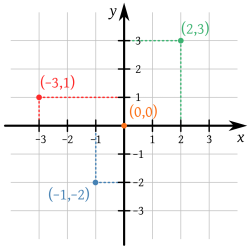cultural identity is a set of cultural traits characteristic of a particular group. These traits are responsible for defining this group, differentiating it from other groups and generating a feeling of belonging in its members.
Cultural identity is about who we are as a group. And this identity is manifested from certain cultural traits, such as language, religion, rites, festivals, artistic manifestations, etc.
Even when an individual separates from his group, he carries with him this identity, that is, this set of cultural elements that link him to the group he belongs to. An Indian who goes to live in Europe, for example, tends to maintain his cultural identity, even though he is physically distant from his home group.
But there are problems in this definition of cultural identity, especially when we take into account the globalized world in which we live. THE globalization it is a process that connects all parts of the world, through the ever-increasing and easier circulation of information, goods and people. This tends to make cultural identities less rigid, fragile or unstable.
Today, for example, people living in opposite parts of the globe can share ways of thinking and acting. The contours that define cultural identities seem to be increasingly blurred. All thanks to modern communication networks, especially the internet, which make information, images and ideas circulate with ever-increasing speed.
Read more about the Definition of Globalization and yours Features.
Against this backdrop, some groups struggle to preserve their traditional identities. This is the case, for example, of indigenous peoples in Brazil. These peoples combine the struggle for the preservation of their traditional territories and their rights with the affirmation of their cultural identities.
What is Brazilian cultural identity
The Brazilian cultural identity is the set of cultural traits that define what it means to be Brazilian. In theory, Brazilians share certain cultural characteristics that make each of them feel part of the nation. This set of distinctive features is called Brazilianness.
It is common to identify ourselves (or to be identified by foreigners) as a happy, communicative, warm and creative people. Certain cultural events, such as Carnival, or eating habits, such as eating rice and beans, seem to be part of this "label" of being Brazilian.
Scholars of national culture draw attention to a characteristic phenomenon in the formation of the Brazilian people: the miscegenation. Historically, we are the result of a mixture of black, indigenous and European cultures, and this mixture would, to a large extent, define our identity.
One of the problems in trying to define the Brazilian cultural identity concerns the enormous diversity of our people, which calls into question the idea of a single national identity. Rather than one, it is perhaps more accurate to say that there are numerous cultural identities. This leads us to believe that a central element of Brazilian cultural identity is precisely the diversity.
Brazil is characterized by great regional diversities. These diversities are social, economic and cultural. A person who travels Brazil from north to south will certainly notice the variety of rhythms, beliefs, customs, accents, etc. along this long journey.
Furthermore, even within a city there are very demarcated cultural differences, many of them determined by socioeconomic inequalities. These local identities, which are often limited to certain zones or neighborhoods in a city, are quite evident in metropolises such as São Paulo and Rio de Janeiro.
Another aspect to be taken into account is the possible erasure of national identity as a result of the formation of a cosmopolitan culture (open to foreign influences). This phenomenon is more present in large urban centers, where the influence of other cultures is usually stronger.
Did you like this content? So try reading too:
- Meaning of Culture
- Meaning of Cultural Diversity
- Cultural Diversity in Brazil
- meaning of multiculturalism


